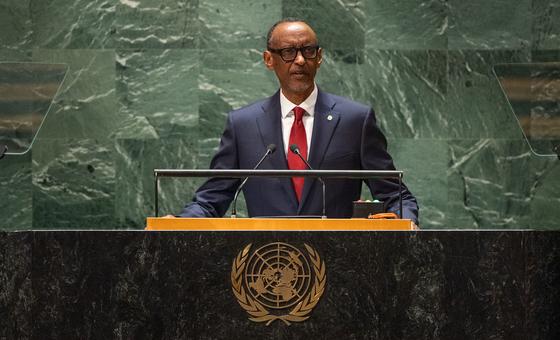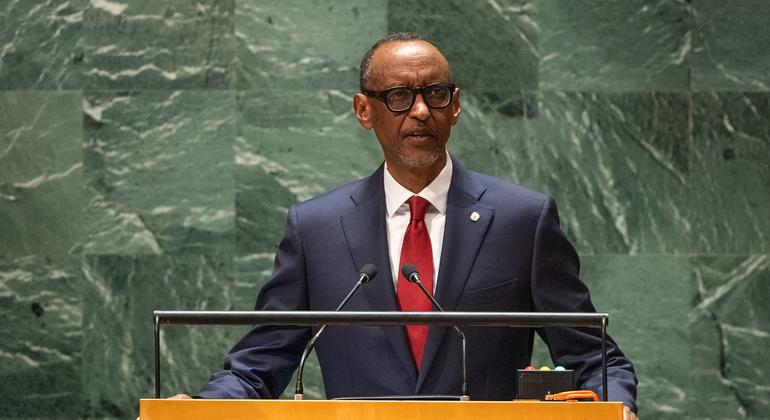
The SDG summit held in New York earlier this week highlighted the disappointing progress made toward achieving the UN’s 17 SDG goals by 2030, said Mr. Kagame.
He commended the Secretary-General’s focus on the issue and emphasized that slow progress toward achieving SDGs would exacerbate economic disparities between countries.
“This year’s SDG Summit has once again raised alarm about the slow pace of SDG implementation,” he said.
“Developing countries are constrained by a debt crisis including higher costs of borrowing. This is causing economic disparities to widen and is slowing down collective progress to SDGs.”
The primary cause of the debt crisis, Mr. Kagame argued, was high interest rates in developed economies in reaction to global inflation.
‘Profound injustice’
President Kagame issued a call for peace across the globe, insisting that innocent lives bore the weight of conflict. He made several references to Rwanda’s history of genocide to highlight the devastating impact of conflict.
“Today, there is no sign of ongoing conflicts ending anytime soon. Innocent lives are left alone to carry the burden of this instability. That is a profound injustice,” he said.
“For Rwanda, the source of our solidarity comes from our commitment to never allowing a repetition of the tragedy that was inflicted on us nearly 30 years ago.”
Mr. Kagame also emphasized the humanitarian impacts of conflict as a primary driver of irregular migration.
“The migration crisis is a case and point. Every year, migrants and refugees undertake dangerous journeys in search of a better future. Rwanda remains committed to working with partners, including the United Nations High Commissioner for Refugees, to contribute to a durable solution,” he said.
No one left behind
Mr. Kagame wenty on to encourage fellow Member States work together to establish a more effective international cooperation framework to fulfill the SDG promise of leaving no one behind. He claimed that shortfalls achieving SDGs directly lead to instability, and welcomed the UN’s New Agenda for Peace.
“We continue to need a more effective forum to manage global crises. A more effective cooperation framework must give equal weight to everyone’s needs and priorities. That is what builds fair and equal partnerships,” he said.
“In this regard, I welcome the Secretary General’s report on a New Agenda for Peace.”
Statement available here.



